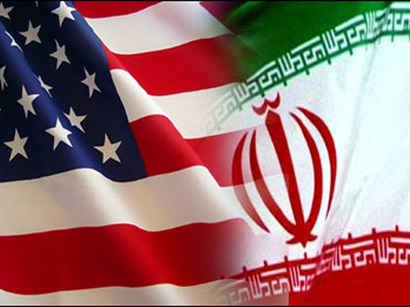
In the May 16th edition of Countercurrents, I argued that the United States was not going to go to war with Iran. I cited several reasons why it would not. First was the revolution in the technology of military weapons such that troops can be struck with smaller, more efficient weapons that could be launched across great distances. In this respect the United States has no particular advantage over countries such as Iran or North Korea. Second is the great alliance that has formed between China and Russia. While American Defense analysts to this day refuse to acknowledge that such an alliance could ever occur, ignoring the fact that it has already occurred, others such as Ray McGovern acknowledge that it exists: “Gone are the days when Richard Nixon and Henry Kissinger skillfully took advantage of the Sino-Soviet rivalry and played the two countries off against each other, extracting concessions from each. Slowly but surely, the strategic equation has markedly changed – and the Sino-Russian rapprochement signals a tectonic shift to Washington’s distinct detriment, a change largely due to U.S. actions that have pushed the two countries closer together.” https://www.counterpunch.org/2017/07/05/the-great-power-shift-a-russia-china-alliance/
While it is true that neither Russia nor China are individually strong enough to go toe-to-toe with Washington in a high intensity long-duration war, a coordinated effort holds out the possibility of American defeat. Beijing military strategists such as Zhan Wenmu understand that “U.S. containment invites China-Russia counter-containment” [即美国遏制与中俄反遏制]. https://nationalinterest.org/feature/china-russia-alliance-20333Lyle J. Goldstein
One might also add that in addition to the revolutionary phase transition in the nature of military weapons which tend to make the “playing field” for military confrontations more equal, and the power of the combined military and economic strength of an aligned Moscow and Peking, there is one other factor which plays a key role in avoiding a war with Iran and that is the psychology of Donald Trump the man. As his actions have demonstrated, his preferred weapons of persuasion are economic rather than military. He is not Bush. He is not Obama. He is not Hillary Clinton. All these people were only too willing to send in the military in pursuit of American interests. Hillary Clinton found joy in the military destruction of nations and in the overthrow and/or murder of their heads of state. This fact is evidenced in her response to Khadafi’s death; laughing gleefully she said on CBS “News”: “We came, we saw, he died.”
That all these factors have come into play is evidenced in U.S. Secretary of State Mike Pompeo’s recent trips around the world. Cancelling at the last-minute a schedule trip to Germany, he flew to Finland for a consultation with the Russian foreign minister, Sergei Lavrov, on the sidelines of an Arctic Council meeting. Afterwards Russia announced the US Secretary of State would be travelling to the Black Sea resort of Sochi to hold talks with Lavrov and possibly Vladimir Putin. . The meeting also followed a phone call between Trump and Putin in which the US president downplayed the role of Russia in the Venezuela crisis. Lavrov lavished praise on Pompeo for the seriousness of his approach to their talks.
Pompeo was looking towards Russia, which is itself an “ally” of Iran, to help diffuse the potentially explosive situation. Pompeo’s visit was followed by one by the Iranian foreign minister, Mohammad Javad Zarif.
The big news today is that, speaking from Switzerland last Sunday, Pompeo told reporters “We’re prepared to engage in a conversation with no preconditions,” While certainly not a genuflection, nor even an actual bending of the knee, it is certainly a “softening” of the American stance towards Iran. https://www.huffpost.com/entry/mike-pompeo-iran-talks-no-preconditions_n_5cf41e16e4b0e8085e3bd15c
This softening begs two questions. The first is whether Iran will actually come to the table to discuss the situation with America. Even prior to Pompeo’s striking declaration Trump had said “ “If they want to talk, I’m available,” Iran’s foreign minister dismissed Trump’s invitation for Iranian officials to contact him about possible talks. “It’s not very likely because talking is the continuation of the process of pressure. He is imposing pressure. This may work in a real estate market. It does not work in dealing with Iran,” Javad Zarif told ABC’s “This Week.”
The second and more important question is, to what degree is this offer a reflection of the “decline” of American power in the world. Unlike G.W. Bush, who invaded Iraq unilaterally and without feeling the need to consult with other nations, Pompeo has gone through a long process of discussion with European leaders and, most significantly, Russia. This is clear evidence of America’s desire to avoid war. It does seem that the “unipolar” power that Putin spoke of, is through his own efforts and statesmanship, eroding.
However, it should also be said, that if American power continue to erode to the point at which it is at least militarily, a severely diminished, there is the distinct possibility that at that point and in one final attempt to salvage its hegemony, America will in fact, go to war.
Mary Metzger is a 74 year old semi retired teacher. She did her undergraduate work at S.U.N.Y. Old Westbury and her graduate work In Dialectics under Bertell Ollman at New York University. She has taught numerous subjects, from Public Sector Labor Relations to Philosophy of Science, to many different levels of students from the very young to Ph.D. candidates, in many different institutions and countries from Afghanistan to Russia. She has been living in Russia for the past 12 years where she focuses on research in the Philosophy of Science and History of the Dialectic, and writes primarily for Countercurrents. She is the mother of three, the grandmother of five, and the great grandmother of two.

No comments:
Post a Comment